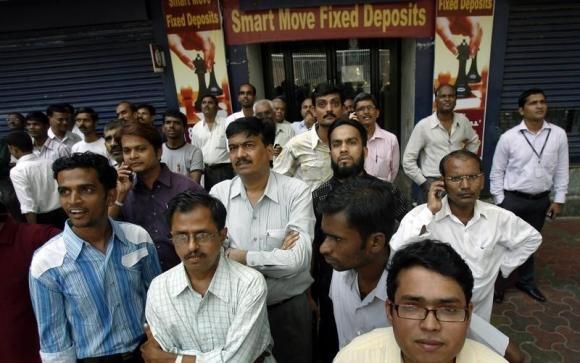Most market players believe if an IPO is being done to fund further expansion, it is good news.
 The season of initial public offerings (IPOs) is back. Calendar year 2015 has already been the best one since 2012 in terms of money raised through IPOs. In 2015, Rs 6,561 crore or Rs 65.61 billionhave been so raised thus far, only a little less that the Rs 6,883 crore raised in 2012.
The season of initial public offerings (IPOs) is back. Calendar year 2015 has already been the best one since 2012 in terms of money raised through IPOs. In 2015, Rs 6,561 crore or Rs 65.61 billionhave been so raised thus far, only a little less that the Rs 6,883 crore raised in 2012.
Investor interest will only grow more from here, as companies such as Cafe Coffee Day and InterGlobe Aviation (owners of the IndiGo airline) are scheduled to enter the market.
Financial planners say investors should always keep an eye for good companies getting listed. Usually, there are two reasons why retail investors want to join the IPO game.
One, to invest in a good stock in which they want to stay invested for the long term.
Two, for listing gains. The latter, most financial planners and market experts say, is often not worth it.
Nor can it be played for too long. It is always good to do a little research before investing.
Why the IPO?
Why is the company raising money? Most market players believe if an IPO is being done to fund further expansion, it is good news.
"If the company wants to build plants, buy machinery, land, etc, it means there is demand for their products and it is a good signal for the potential investor. If the money is being raised to retire debt or so that some partner can exit, it does not give great comfort," says an investment advisor.
Pricing
Everything depends on this key thing. Recently, Prabhat Dairy, planning to raise Rs 300 crore at Rs 140-147 a share, had to bring down the pricing to Rs 115-126 a share.
It also had to extend the issue closure date to September 4. Many a time, pre-IPO investors want to make the most of an issue and, consequently, this is priced very highly - a typical situation in a rising market when every IPO has buyers. But, retail investors should not get carried away because they are not traders.
Unless unique, avoid IPOsComparing
What if no peer comparison? This is a tough question even for analysts. And, unless it is a company like Coal India, almost a monopoly and backed by government, it is tougher to take a call.
But, if a retail investor really wants to participate in a company which does not have any peers in the Indian market, they need to do more research.
"I would look at global peers or at a similar company in India. Importantly, if you do not understand the business, drop the idea of subscribing to it," says a mutual fund manager, who believes retail investors are better off putting money in MFs than experimenting with IPOs.
Don't invest for listing gains
Arun Kejriwal, investment advisor, gives a good reason why investing for listing gains is not worth it.
"Listing gains is a function of demand. And, demand can be manipulated." He cites the example of a company which received high investor interest - the high net worth individuals (HNIs) and qualified institutional buyers' (QIBs) portions were subscribed 250 times and 50 times, respectively. The issue, as a result, was subscribed multiple times.
In an IPO, QIBs have 50 per cent quota, retail investors have 35 per cent and HNIs have 15 per cent quota.
The market regulator, Securities and Exchange Board of India, has allowed companies to change the retail investor and QIB quotas with prior disclosure.
The problem arises if unlimited bidding is allowed and it can be a trap for retail investors looking for listing gains. "When an IPO is subscribed multiple times due to HNIs and QIBs, it is not necessary that there is huge demand," adds Kejriwal.
Unless unique, avoid IPOs Retail investors, for instance, might get trapped if the HNIs quickly exit on listing, as did happen in the above-mentioned issue.
Market players say investors should wait for at least 90 days or more if they are investing in an IPO. "Since anchor investors cannot exit before one month, things would take two to three months to settle down.
A retail investor should then take a call," says a financial planner.










 © 2025
© 2025